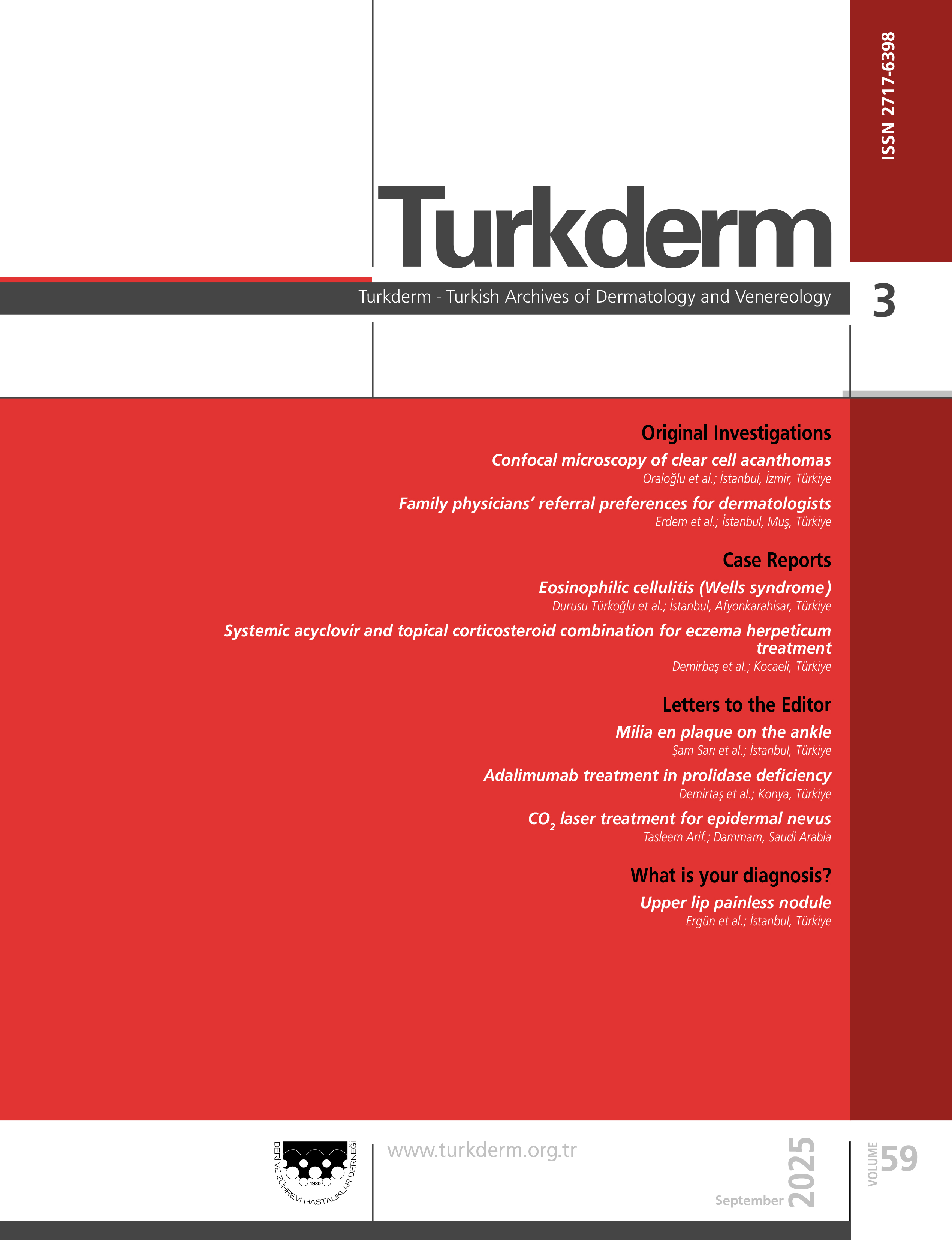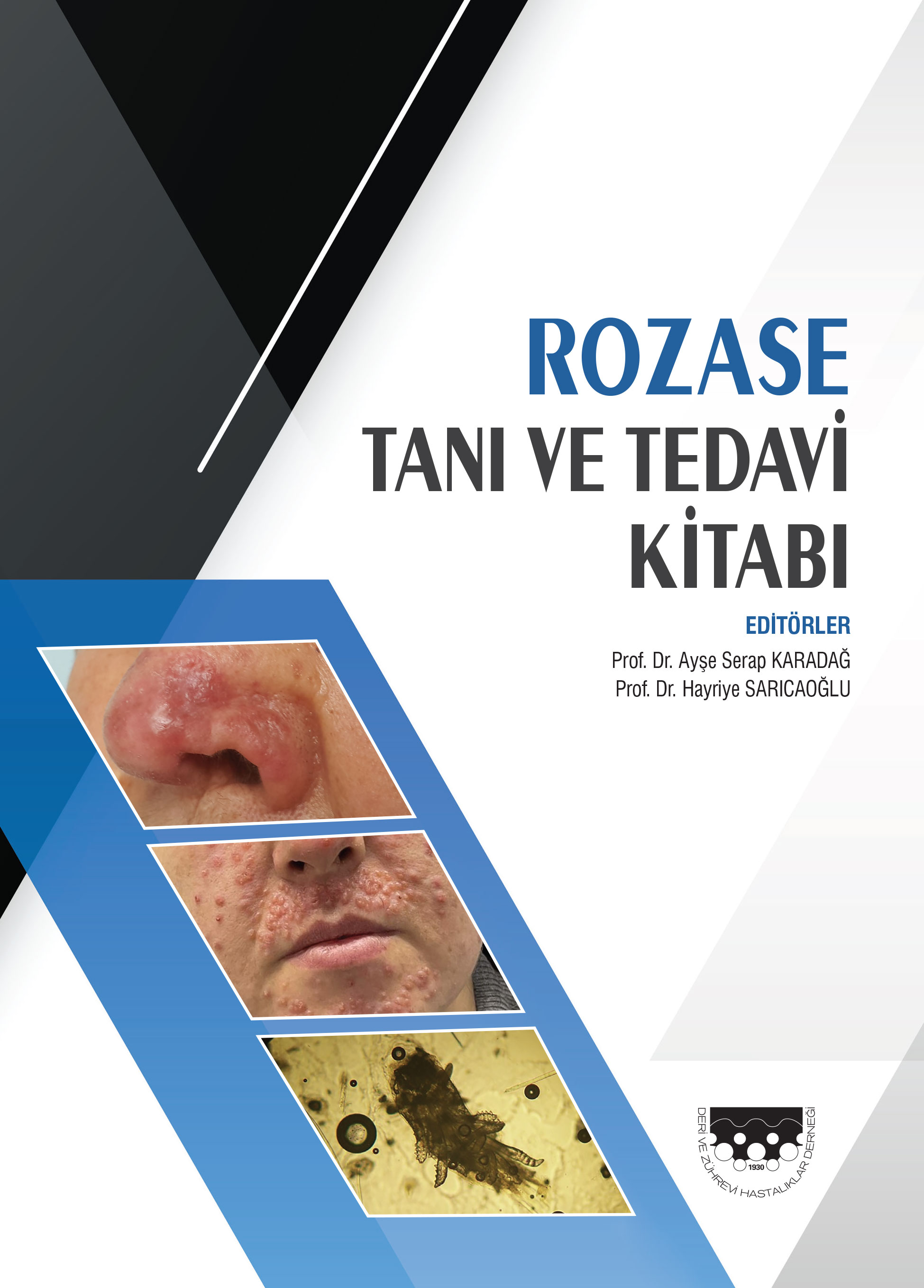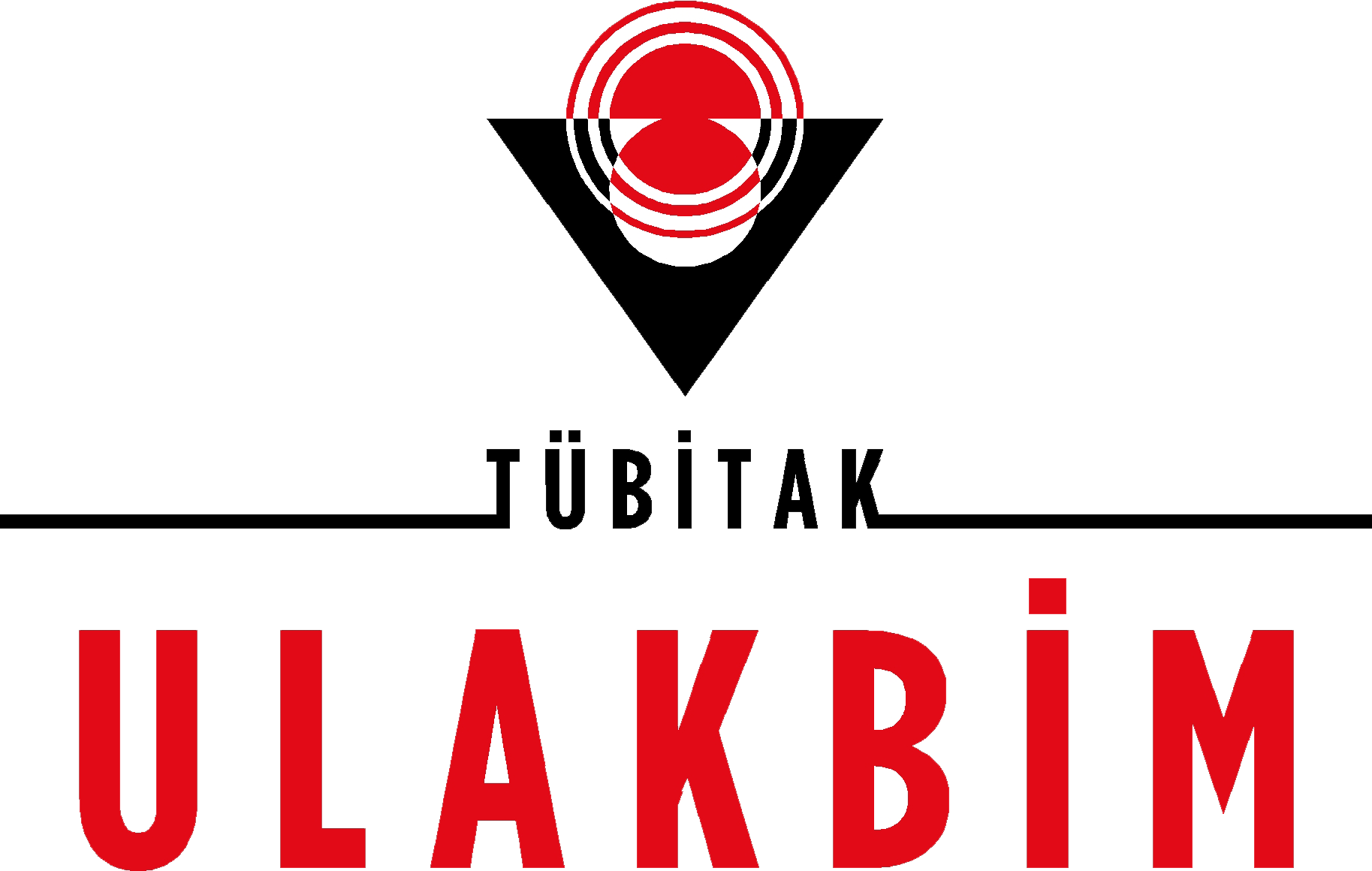Herpes zoster in cancer patients after radiotherapy
Yasemin Benderli Cihan1, Abdullah Turasan21Kayseri Education And Research Hospital, Department Of Radiation Oncology, Kayseri2Kayseri Education And Research Hospital, Department Of Dermatology, Kayseri
Aim: HZ is at risk for reactivation of dormant virus. It occurs with increasing frequency in the elderly and encountered especially in immunosuppressed patients. The aim of this retrospective study is to analyze the epidemiologic, pathogenesis, clinical and therapeutic profiles of HZ after radiotherapy.
Materials and methods: We retrospectively analyzed the data of patients, who had a diagnosis of HZ after radiotherapy between June 2005 and September 2012.
Results: A herpes zoster after completion of radiotherapy occurred in 30/6784 patients mostly within the first 246 months (mean 25). Fifteen patients were men and the mean age of the patients was 59 years. Twelve patients had breast cancer, seven patients had lung cancer and, five patients had prostate cancer. Twenty-six patients were distressed and 4 patients had physical trauma. The most frequent complaints were pain and burning (54.2%). All infections remained localized (%60 thoracic) and there was no evidence for systemic infections. Three patients had an eruption involvement radiotherapy area. Duration of symptoms ranged from 1-7 days. All patients were treated with acyclovir orally. Post herpetic neuralgia developed at nine patients.
Conclusion: HZ after radiotherapy is a disease that can be seen more in people with weakened immune systems. The use of vaccines in the treatment of patients with early starting or HZ virus is possible to reduce morbidity and mortality. HZ is more common in immunocompromised cancer patients especially after radiotherapy. It is possible to reduce risk morbidity and mortality with early treatment or varicella vaccines.
Keywords: Herpes zoster, cancer, radiotherapy, incidence, risk
Kanserli hastalarda radyoterapi sonrası herpes zoster
Yasemin Benderli Cihan1, Abdullah Turasan21Kayseri Eğitim Ve Araştırma Hastanesi, Radyasyon Onkoloji Bölümü, Kayseri2Kayseri Eğitim Ve Araştırma Hastanesi, Dermatoloji Bölümü, Kayseri
Amaç: Herpes zoster (HZ) suçiçeği virüsünün reaktivasyonu ile oluşur. Genellikle erişkin çağda görülür. Hücresel bağışıklığın azalması ile görülme sıklığı artar. Bu çalışmanın amacı, radyoterapi sonrası görülen HZ olgularının etyolojisi, patogenezi, klinik bulguları ve tedavi yaklaşımlarını değerlendirmektir.
Gereç ve Yöntem: Haziran 2005 ve Eylül 2012 tarihleri arasında radyoterapi sonrası HZ tanısı konulan hastaların verileri retrospektif olarak incelendi.
Bulgular: HZ tanılı 6784 hastanın sadece 30unda radyoterapi sonrası 246 ay (ortalama 25) tanı konuldu. Olguların 15i erkek hasta ve yaş ortalaması 58 idi. On iki hasta meme, 7si akciğer, 5i prostat kanseriydi. Olguların 26sınde stres, 4ünde travma öyküsü vardı. En sık görülen semptomlar ağrı ve yanma idi. Tüm hastalarda lokalize (%60 torakal) tutulum var iken sistemik tutulum hiçbir hastada görülmedi. Üç hastada radyoterapi alanında döküntü gelişti. Semptom süresi 17 gün arasındaydı. Hastaların hepsine oral asiklovir verildi. Dokuz hastada postherpetik nevralji gelişti.
Sonuç: HZ, radyoterapi sonrası bağışıklık sistemi zayıflamış olan kanser hastalarında daha çok görülebilen bir hastalıktır. Bu hastalarda tedaviye erken başlanılması veya HZ virüs aşılarının kullanılması ile morbidite ve mortaliteyi azaltmak mümkündür.
Anahtar Kelimeler: Herpes zoster, kanser, radyoterapi, insidans, risk
Manuscript Language: Turkish























